 By Britin Haller
By Britin Haller
Fair warning to anyone going to The Foundry for Harvey Fierstein’s Torch Song because they want to see a play about a drag queen, as the promotional images suggest.
Technically it’s true, as the lead character does happen to be a male torch song singer who dresses as a woman (and who gives us a great soliloquy in the first five minutes), but that’s the extent of it, and other than that, the fact that Arnold Beckoff works in drag under the name Virginia Ham is irrelevant to the plot. That happens to be what he does for a living, but he could just as easily be a server, or a sales clerk, or a teacher, as is his on-again, off-again boyfriend.
As it turns out, that’s the point. More on this later.
Otherwise, Arnold is a gay Jewish man, with an overbearing mother, who is trying to find love (“I’ve had sex with more men than are named in The Bible”), and maybe more importantly, while making a life for himself in NYC in the 70s.
As you might imagine, this is not an easy task. Be prepared because the play is long, and some of the scenes do go on. And on. But make no mistake about it, the acting and tech work is top-notch, and while it’s not exactly what we expected going in, we are better for having seen it.
Originally produced as Torch Song Trilogy and four hours in length, this condensed revival version takes place in what are essentially three acts.
Written by the legendary Harvey Fierstein, this semi-autobiographical story can be summed up as Arnold falls in love with Ed, Arnold loses Ed, and Arnold’s mother comes to visit his apartment while Ed is staying there. With a lot of angst in between. Arnold came out to his mom when he was thirteen, and according to her is constantly reminding her. “I don’t know why you don’t just wear a big sign and get it over with,” she tells him.
Poor Arnold. He just can’t catch a break. He tends to pick all the wrong men, including Ed who is definitely not out of the closet and spends most of his time with his girlfriend, Laurel. Essentially she’s Ed’s beard, although she doesn’t realize it at first. She thinks they’re in a real relationship, even though she knows Ed still wants Arnold also. She’s a nice woman, who like Arnold, has simply picked the wrong man.
Except there’s nothing simple about it, including when she invites Arnold, and his new younger boyfriend Alan, to stay with them for a couple of days, and before the weekend is over, Ed has slept with Alan behind Arnold and Laurel’s back. “This is so civilized, it’s downright Noel Coward,” Laurel says.
Alex Martinez (Arnold) and Christian Cooper (Ed) are both popping their Plays of Wilton cherries, so to speak. They are nice-looking actors who portray their angst perfectly without allowing their kvetching to go over the top. As they explore their respective other relationships, they keep coming back together until the question remains, are they each other’s happily ever after, after all?
In a playwright’s literary device, Arnold has a friend named Murray who he only speaks to over the phone. This allows Arnold to give us his inner thoughts without having him speak directly to us. Martinez seems to struggle a bit with the heavy Brooklyn/Jewish accent, but mostly, he nails it.
Arnold’s foster son, David, wants nothing more than Ed and Arnold to get together, even though Arnold’s mother (Ma) would prefer he settle down with a nice Jewish girl. In a role played by Estelle Getty (both Off-Broadway and On), four-time Carbonell Award-Winner Lourelene Snedeker doesn’t mess around as Ma. She’s bitter because she lost her husband of thirty-five years, and all she has left is a “watch, a wallet, and a wedding ring.” She’s capable of truth zingers like when she tells Arnold, “I could have comforted you. You cheated me out of your life, and then blamed me for not being there.”
No angel himself, Arnold throws them right back at his mom as in this line during one of their nasty squabbles. “Whenever there’s a problem with David, I think about what you would do as a parent, and I do the opposite.”
Regular patrons of Ronnie Larsen Presents and the Plays of Wilton will recognize Jackson Goddard as David, the teenage boy Arnold is fostering. Goddard was in last year’s stellar production of A Shonda, and this season’s The Sound of Music. He is also a talented and award-winning scenic designer and obviously has a bright future on the boards, and behind them.
Gentlemen, hang onto your husbands because Gianni Palermo as Alan grabs our hearts (and other body parts) from the moment he walks out and seductively toys with us while wearing leather pants, before stripping down to his leopard boxer shorts. Even Laurel can’t blame Ed for his attraction to this young man. And when Palermo shows up again near the end of the show to the tune of “I’ll Be Seeing You,” by Jimmy Durante, those same hearts break. We’d love to see this charismatic actor again.
Pam Hankerson is a busy lady. We lost count of the number of costume changes, and when she’s not on stage as Laurel, she’s the inner voice of Arnold, and a radio announcer. When Hankerson sings, her a little off-key tones actually become endearing as the production goes on. And her portrayal of Laurel is touching and heartfelt. It was fun to see what Hankerson would come out wearing, and what she would come out singing next, and although we’re not sure “Cold as Ice” by Foreigner qualifies as a torch song, it was clever, and we’ll allow it.
It’s always a good time when Director Ronnie Larsen is in-house, as he was on the night we attended. Having traveled the globe producing gay theater, Larsen is a blessing to South Florida audiences, as is evidenced by his multiple Carbonell and Silver Palm awards and nominations. He was also recently informed by the Miami New Times that the Arts & Entertainment Award for Best Theater Company this year was won by him. And his newly remodeled theater with its stunning red pleated velour curtain is all the rage.
Set design by Melqui Dominguez is appropriately minimal with basic furniture, including one giant bed that reminds us of Bob and Carol and Ted and Alice when four of the actors are on it. A cultural reference of the time includes pink and white rotary wall phones with cords long enough to get tied up in. In a nice homage to Torch Song Trilogy, the phrase “Widows and Children First” (the name of the OG Act Three) is spelled out on a refrigerator door using kid’s colorful magnetic letters. But would someone please take some WD-40 to the squeaking chair Arnold sits on at the top of the show? It’s like nails on a chalkboard. I’m kvetching over here.
Costume shop manager at FAU by day, designer Tim Bowman proves why he’s in demand with several area theater companies with his 1970s’ looks especially Hankerson’s elegant dresses. And how about those adorable bunny slippers Arnold likes to plod around in? Designer Preston Bircher, a lighting guy since the ripe old age of ten, is also in demand locally and proves why. The smoky-filled atmosphere of the gay bar with its’ backroom, mannequins, pulsing music, fog machine, and strobe lights puts us right in the moment thanks to technician Panos Mitos, who also gives us a fun laugh track at one point.
One name that is synonymous with theatrical music in our area is Bobby Peaco, who lends his talents here to what is essentially a play with music, or a musical play if you will, because while the songs are entertaining and add value during scene changes and elsewhere, they don’t really serve to build character, express emotions, or move the plot along.
Which explains to anyone wondering why the original Torch Song Trilogy was considered a play, and not a musical, in regards to awards categories like the Tony Awards, for which it received a statue for both Best Play and Best Performance by a Male Actor in 1983.
Before becoming a groundbreaking playwright, Harvey Fierstein appeared in over sixty Off-Broadway productions, an impressive feat indeed, but that was nothing compared to the career he was about to have, spanning several decades and including writing the U.S. book for La Cage aux Folles and starring in Hairspray (two other hits that utilize men in drag) that would win him two more Tonys. Likely not coincidentally, many years later Fierstein co-starred in the film Mrs. Doubtfire, with Robin Williams taking on the outward appearance of an older woman in order to gain access to his children. And we love that Fierstein also wrote The Wiz Live!, a made-for-tv special that we need to locate and watch now.
Fierstein became an idol in the gay community for giving them a voice as a people who mattered. Until that point, gays had been portrayed mostly as stereotypes and promiscuous caricatures not to be taken seriously. The Boys in the Band comes to mind. Fierstein normalized, if you will, what it means to be a homosexual, and showed the world how we are all complex, yet simple, creatures with an underlying desire to love and be loved.
Most importantly, Fierstein was widely accepted by both the gay and straight communities during a time when AIDS was just rearing its ugly head, and the gay community could use all the support it could get.
In 1988, New Line Cinema released the film Torch Song Trilogy starring Fierstein as Arnold, Anne Bancroft as Ma, Brian Kerwin as Ed, and the totally adorable, Matthew Broderick as the barely legal Alan. It was well-received and furthered Fierstein’s cause of gays gaining acceptance into mainstream society.
Harvey Fierstein was inducted into the Theater Hall of Fame in 2008, as he should be. Torch Song Trilogy, and now his revival Torch Song, have rightfully taken their place in American theatrical history. So if you go, and you should, remember you’re not just seeing a show about a drag queen finding love amidst one of the toughest cities in the world (“If I can make it there, I’ll make it anywhere”), you’re experiencing a nostalgic phenomenon that is bigger than all of us, and that was at the time, and still is today, a voice for people who matter.
So, in the end, we do have to admit it’s a bit of a drag (yes, we went there) to not see Arnold as Virginia Ham more than we do, but that’s our problem, because that’s not the story being told here. Arnold (and his alter ego Virginia’s) message to sing it loud and proud, and to never be ashamed of who you are, is even more relevant today.
PS: In case you’re thinking of taking Grandma, Harvey Fierstein’s Torch Song contains two instances of simulated sex (clothed) and a little profanity.
Harvey Fierstein’s Torch Song by Ronnie Larsen Presents plays through Sunday, August 31 at The Foundry, 2306 Dixie Highway, Wilton Manors. Some performances are already sold out. Showtimes are Thursdays-Saturdays at 8 p.m. with Sunday matinees at 3 p.m. Running time approx. 160 minutes with a 15-minute intermission. Tickets start at $37.50. Call 954-826-8790, or visit playsofwilton.com.
Britin Haller is a journalist, editor-for-hire, and an author who serves on the board of directors for the Mystery Writers of America Florida Chapter. As a celebrity wrangler, Brit regularly rubbed elbows with movie stars, sports stars, and rock stars, and as a media escort, she toured with New York Times bestselling authors.




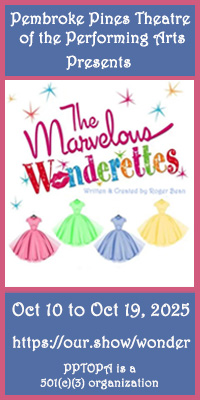
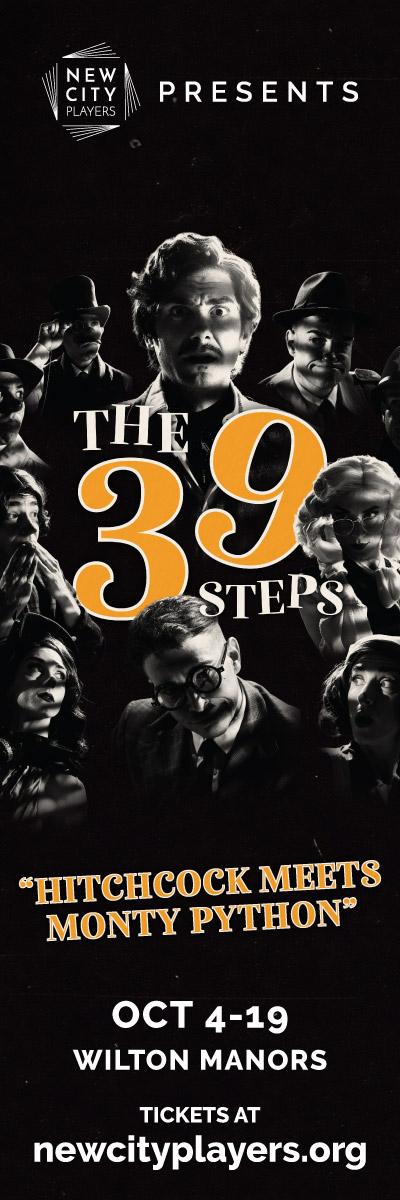
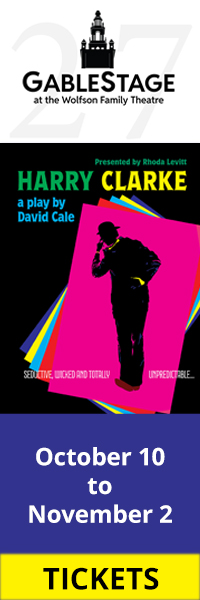


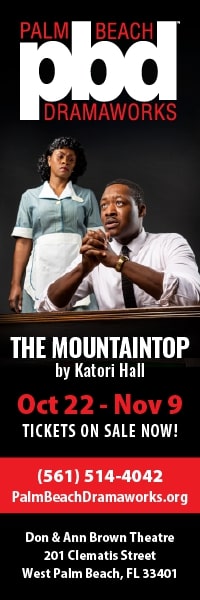
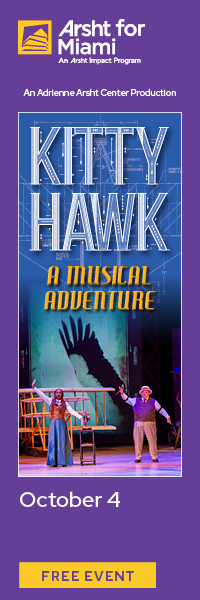

 A PaperStreet Web Design
A PaperStreet Web Design
